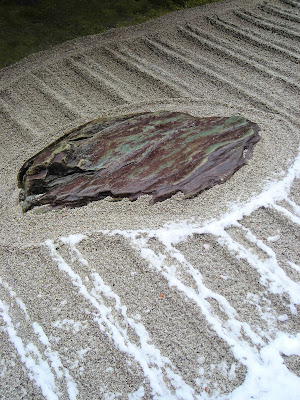A letter from the eastern dragons
18th February 2012
Dragons of the East, by birthright and by nature, Rulers of the Four Seas, Kings under the Waves, River Gods and Storm Lords, to the Children of Man, also known as Human Beings and now styling themselves Primate: Greeting.
It has come to our attention that the arrival of another Dragon year has roused interest in all matters dragonish.
In particular, it has been put about that the humans of the West regard our kind as creatures of malevolence while those of the East possess a clearer understanding of our true nature.
It is true that there are those among you who adopt fitting postures of veneration. You name your young after us and adorn your places of worship with our likenesses. This is meet and as it should be.
Nevertheless, not even the humans of the East have always conducted themselves in a manner so becoming.
Consider the matter of the dragon king Zennyo in the year numbered 824 according to one of your calendars. You will recall that the land you now call Japan was troubled by drought and that the emperor ordered two priests to conduct rain-making ceremonies.
The holy man named Kukai prayed for several days but to no avail. Whereupon he discovered that the other priest – his rival, we surmise – had captured all the dragons of the inner and outer seas through magical means, and trapped them in a pitcher.
Only one – Zennyo – had not fallen under the priest’s spell. It was to this dragon that the human Kukai appealed. At his behest, the emperor made offerings to Zennyo. Finding them pleasing, the dragon called down the rains and ended the drought.
This episode is sometimes advanced as proof of the benevolence of dragons and their powers over the weather. We feel the more pertinent point is the unlawful confinement of our kin.
We lay another case before you. Five hundred years before this occurrence, the emperor of the time ordered that a man named Koromo no ko be sacrificed to one of the dragon river gods known as Mizuchi. An embankment built to hold off a flooding river had given way and could not be repaired. This man’s life was offered up that the bank might be restored.
Yet the wretch did throw two gourds into the river and spoke thus: ‘Sink these calabashes that I may know that you are a true god and I shall enter these waves most willingly. But should you fail, I shall know you for a false god and who is fool enough to offer his life to such a one?’
Whereupon there was a great disturbance in the waves as the Mizuchi sought to draw the calabashes down into the river. But an empty gourd is an unsinkable gourd and thus outwitted, the dragon was forced to allow the rebuilding of the bank.
This astounding reluctance to be eaten perplexes us. Is it not an honour to be consumed by beings as august as we?
We hold these truths to be self-evident, that all dragons are created superior,
that they are endowed by the Creator with certain unalienable rights, that among these are life, liberty and the pursuit of dinner. That to secure these rights, awe shall be mandated among men, deriving its dread powers from the despair of the quelled.
Yet some of your kind – priests and the like – have made representations to us. Such were their claims: that you do not accept our appetite for humans, whether raw or lightly seared, and that such habits of consumption are cruel.
Cruel! And what, if we may inquire, do
you eat?
We ate the priests at first.
But they kept coming, and the warriors too, with their iron. They chained us to rocks, they struck us with swords, they cut off our heads. Yamata no Orochi, a mighty dragon whose length spanned eight hills and eight valleys, was lost in this manner. You regard this as legend, not fact, but we remember.
We remember Orochi and his eight heads, all cut off.
We are not unreasonable; we have considered the matter of human sacrifice from your perspective, taxing as it was to approximate the thinking of an ape. And we have been moved to accept substitutes.
Understand that the unseemly assaults on our kind have in no way wrought this change. As a gesture of magnanimity – the generosity of dragons has long been the marvel of the civilised world – we have hazarded our persons on a human-free diet. We find ourselves partial to water buffaloes, deer and also, fruitcake.
But no more chickens.
We are weary of chicken.
Pay heed and you shall be rewarded. We shall in our munificence shower upon you rain and double rainbows and, perhaps, kittens.
We have observed the digital imagery that you exchange among yourselves and noted the prevalence of juvenile cat videos.
We ourselves profess a certain fondness for domesticated felines. This brings us to another matter. In some depictions of the dragons of the East, there appears to be a ball or pearl near the head.
This is a misunderstanding, due no doubt to the distance between the dragon and the human observer. The spherical object is no pearl but a cat, curled up after hours of play.
As a mark of particular favour then, we shall bestow on you kittens. Do not wake them at all hours to summon the rains nor confound them with calabashes. And – heed this or risk our wrath – see that you do not confine them in pitchers and such small spaces, nor poke them with sharp objects nor deny them food.
We trust that even you would not be so cruel.
Given at our secretariat in Ryugu-jo this first day of the first month of the Year of the Black Water Dragon. 


